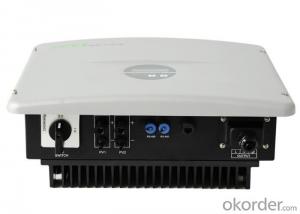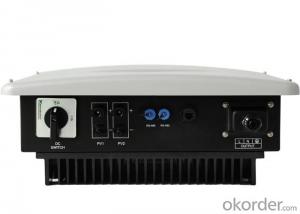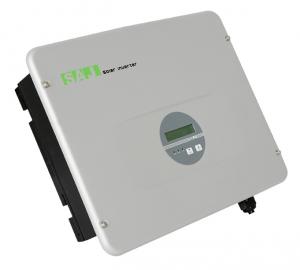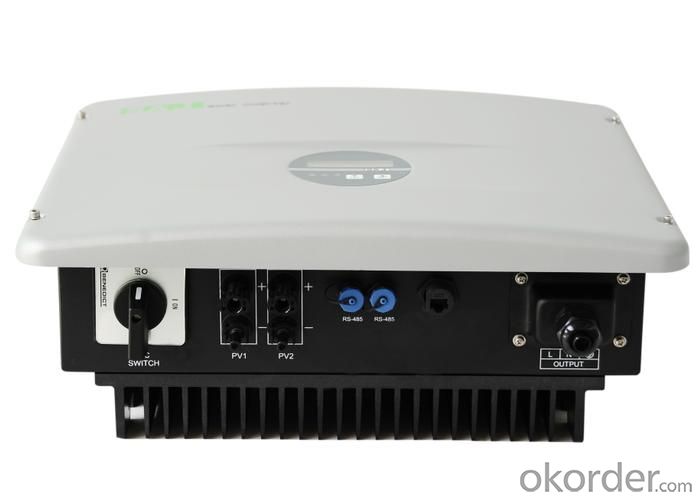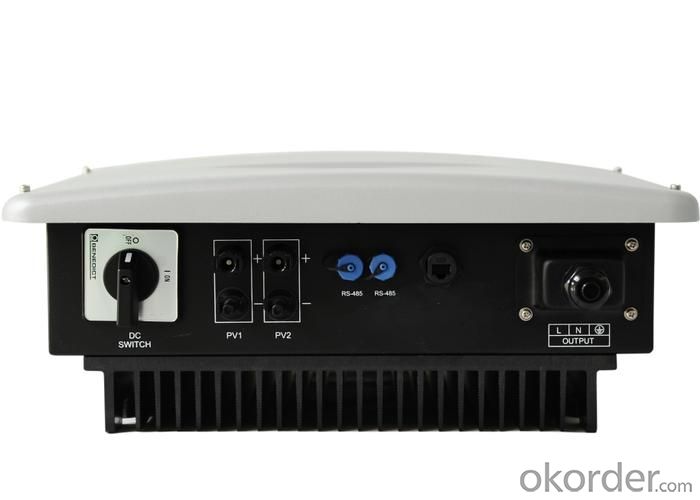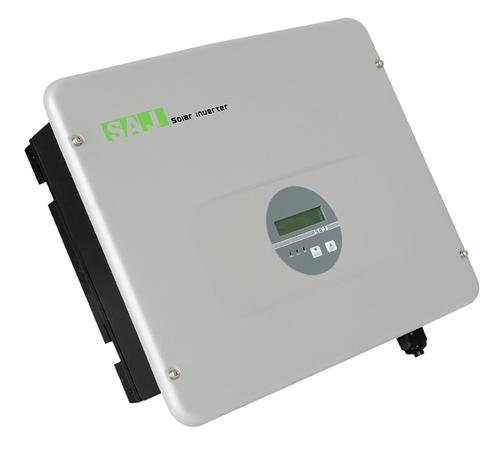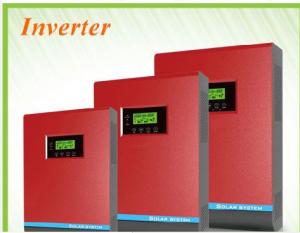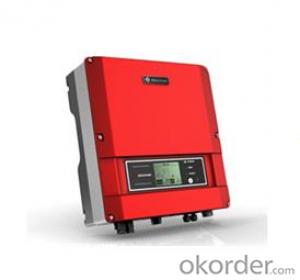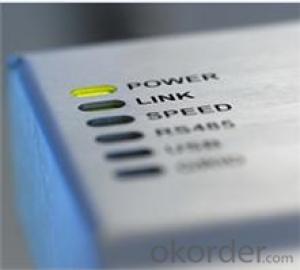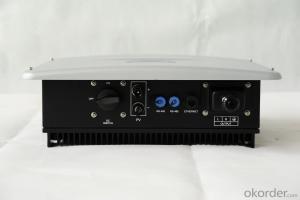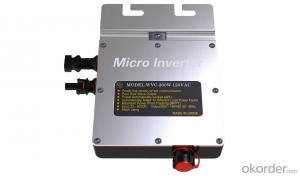Sununo-TL2K Single Phase Solar Inverter Manufacturer
- Loading Port:
- China main port
- Payment Terms:
- TT OR LC
- Min Order Qty:
- 1 pc
- Supply Capability:
- 1000 pc/month
OKorder Service Pledge
OKorder Financial Service
You Might Also Like
Specification
1.Flexible
• Ethernet / Wi-Fi communication
• Wide range of DC input voltage
• IP65 for indoor and outdoor use
2.Reliable
• Comprehensive protection functions
• Compact design, fanless
• First-class components
3.Efficient
• Max. efficiency up to 97.7%
• Euro. efficiency up to 97.1%
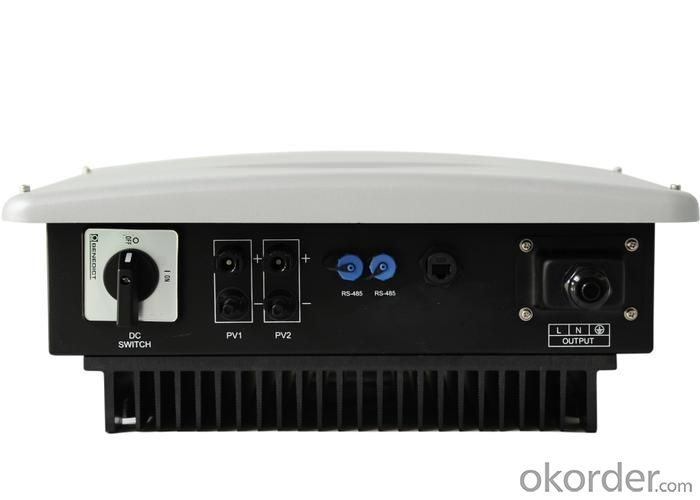
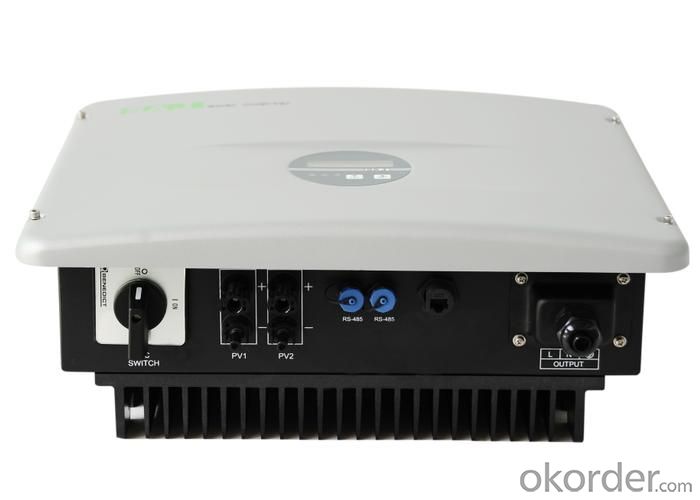
• MPPT accuracy up to 99.9%
4. Certificates: TUV,SAA,G83,ISO9001,ISO14001,etc.
FAQ
1. How long will my inquiry get response?
Your inquiry related to our products or prices will be replied within 24 hours.
2. Can I get professional service and suggestion?
Well-trained and experienced staffs to answer all your questions in fluent English.
3. Do you accept OEM or customized design?
OEM & ODM, any your customized lightings we can help you to design and put into product.
4. What if I need specific design?
Distributorship are offered for your unique design and some our current models.
- Q: How does a solar inverter handle power surges or fluctuations?
- A solar inverter handles power surges or fluctuations by using advanced circuitry and protective measures. It typically includes surge protection devices that can absorb excessive voltage spikes, diverting them away from the system. Additionally, the inverter continuously monitors the grid voltage and adjusts its own output accordingly to maintain a stable and safe supply of electricity.
- Q: How does a solar inverter handle variations in temperature?
- A solar inverter handles variations in temperature by employing temperature compensation techniques. It continuously monitors the temperature of the solar panels and adjusts its output voltage and frequency accordingly. This helps maintain optimal performance and efficiency, as temperature changes can affect the electrical characteristics of the panels. Additionally, inverters may have built-in cooling systems or heat sinks to dissipate excess heat and prevent any damage caused by high temperatures.
- Q: How does the weight of a solar inverter affect its installation process?
- The weight of a solar inverter can significantly impact its installation process. Heavier inverters may require additional support structures or mounting equipment to ensure proper installation and stability. They may also require more manpower and specialized equipment during the installation process. Conversely, lighter inverters may be easier to handle and install, potentially reducing installation time and effort. Therefore, the weight of a solar inverter is an important consideration that can influence the overall installation process.
- Q: Can a solar inverter be used with a solar-powered security system?
- Yes, a solar inverter can be used with a solar-powered security system. A solar inverter is essential for converting the direct current (DC) generated by solar panels into alternating current (AC) that can be used to power electrical devices, including security systems. By using a solar inverter, a solar-powered security system can efficiently utilize solar energy and ensure uninterrupted operation.
- Q: What are the signs of a faulty solar inverter?
- Some signs of a faulty solar inverter include a sudden decrease in energy production, frequent system shutdowns or restarts, unusual noises coming from the inverter, error messages or warning lights displayed on the inverter, and a lack of communication between the inverter and monitoring devices.
- Q: Can a solar inverter be used with solar-powered water heaters?
- No, a solar inverter cannot be directly used with solar-powered water heaters as they serve different purposes. A solar inverter is used to convert the direct current (DC) electricity produced by solar panels into alternating current (AC) electricity for use in homes or businesses. On the other hand, solar-powered water heaters utilize the sun's energy to heat water directly, without the need for electricity conversion.
- Q: How does a solar inverter impact the overall system reliability?
- A solar inverter plays a crucial role in the overall system reliability of a solar power system. It converts the direct current (DC) generated by solar panels into alternating current (AC) that can be used to power homes and businesses. By efficiently managing the power output and ensuring proper voltage levels, a solar inverter helps maintain the stability and reliability of the system. It also includes protective features that safeguard the system from potential issues like overvoltage, overcurrent, and short circuits. Therefore, a high-quality solar inverter positively impacts the overall system reliability by ensuring optimal performance and protecting against potential faults or failures.
- Q: Generally a large grid-connected photovoltaic power plant will have several inverters
- Inverter, a single failure, does not affect other operations, the impact on the grid is small, high reliability.
- Q: How does a solar inverter handle partial shading on solar panels?
- A solar inverter handles partial shading on solar panels by utilizing a technique called Maximum Power Point Tracking (MPPT). MPPT allows the inverter to continuously track the optimal operating point of each individual solar panel, even if some panels are partially shaded. By constantly adjusting the voltage and current levels of the panels, the inverter ensures that the shaded panels do not significantly affect the overall system performance, maximizing the energy output of the entire solar array.
- Q: Can a solar inverter be used with thin-film solar panels?
- Yes, a solar inverter can be used with thin-film solar panels. Thin-film solar panels have a different structure and composition compared to traditional crystalline silicon panels, but they still generate DC electricity that needs to be converted into AC for use in homes or businesses. A solar inverter is responsible for this conversion process, regardless of the type of solar panels used.
Send your message to us
Sununo-TL2K Single Phase Solar Inverter Manufacturer
- Loading Port:
- China main port
- Payment Terms:
- TT OR LC
- Min Order Qty:
- 1 pc
- Supply Capability:
- 1000 pc/month
OKorder Service Pledge
OKorder Financial Service
Similar products
Hot products
Hot Searches
Related keywords
